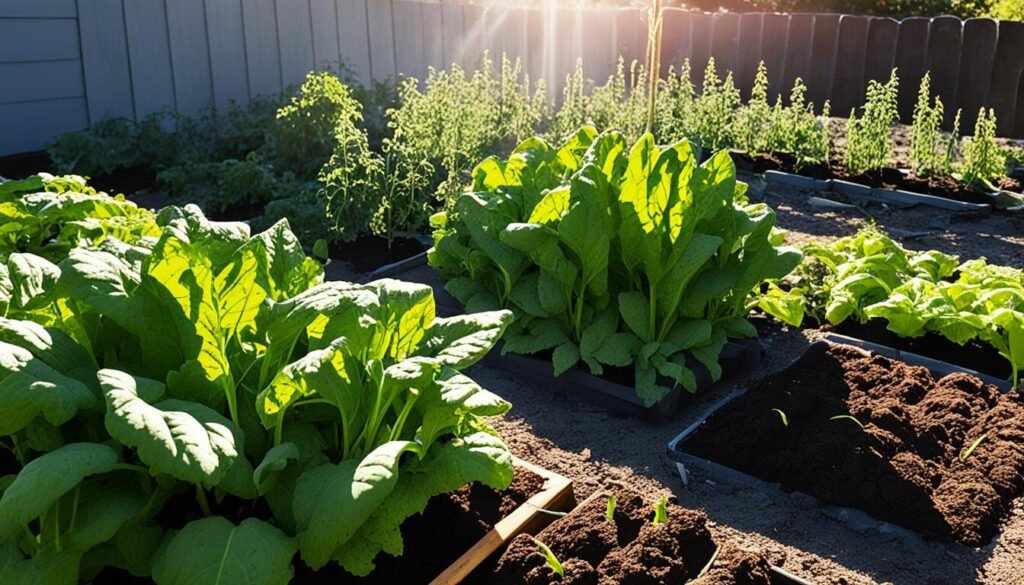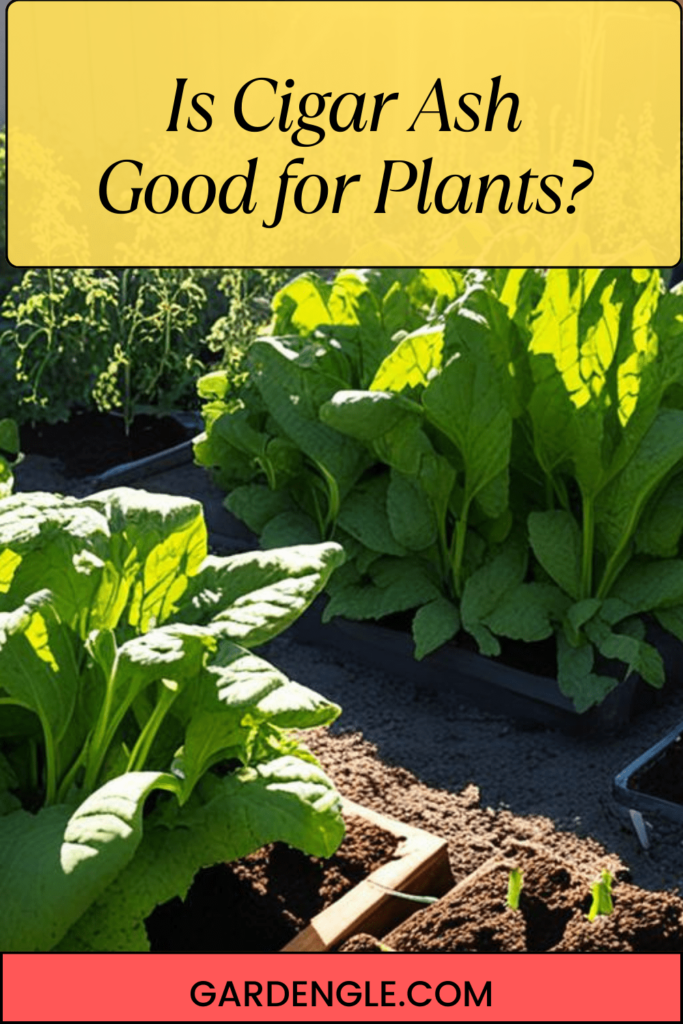Imagine strolling through a lush, vibrant garden teeming with life. The delicate scent of flowers dances in the air, and the sun’s warm rays gently kiss your skin. It’s a sanctuary of beauty and serenity, a place where nature thrives and flourishes. And as you marvel at the wonders of the natural world, a thought crosses your mind – could something as unexpected as cigar ash hold the key to enhancing the growth and vitality of these plants?
It’s an intriguing proposition, isn’t it? The idea that a seemingly ordinary byproduct could have hidden potential to nourish and nurture our beloved flora. In this article, we will dive deep into the world of cigar ash and plants, exploring its benefits, understanding its composition, and uncovering its secrets. So let us embark on this botanical journey together, as we unravel the mysteries of cigar ash and its potential impact on plant growth and soil health.
Understanding Cigar Ash Composition
Before delving into the benefits of using cigar ash for plant growth and its application in gardening, it’s essential to understand the composition of cigar ash and its potential impact on plants. Cigar ash is the residue left after a cigar has been smoked. Although it may seem like a waste product, cigar ash contains various components that can contribute to soil health and provide nutrients for plant growth.
When a cigar is burned, it undergoes a combustion process that transforms the tobacco leaves into ash. This ash is comprised of both organic and inorganic materials, making it a complex mixture. Some of the key substances found in cigar ash include:
- Potassium: Cigar ash is known to be rich in potassium, which is an essential macronutrient for plant growth. Potassium plays a crucial role in various physiological processes, including photosynthesis, water regulation, and nutrient uptake.
- Calcium: Another important mineral present in cigar ash is calcium. Calcium contributes to cell wall development, root growth, and overall plant structure. It also helps in neutralizing soil acidity and improving soil structure.
- Magnesium: Cigar ash may also contain magnesium, which is necessary for chlorophyll production and energy transfer within plants. Magnesium deficiency can lead to reduced photosynthesis and overall plant health.
- Trace Elements: In addition to the major nutrients, cigar ash may contain trace elements such as iron, manganese, zinc, and copper. These micronutrients are essential for various enzymatic reactions in plants and play a vital role in plant metabolism.
While the exact composition of cigar ash can vary depending on the type of tobacco used, the growing conditions, and the manufacturing process, it generally contains a range of minerals and organic compounds that can benefit plants.
“Cigar ash is a unique source of nutrients for plants, providing potassium, calcium, magnesium, and trace elements that can contribute to plant growth and development.”
– Gardening expert, Maria Rodriguez
It’s important to note that the nutrients found in cigar ash are typically present in small quantities. However, even these trace amounts can have a positive impact on plant health when used as part of a holistic approach to gardening.
By understanding the composition of cigar ash, gardeners can gain insights into its potential benefits as a natural plant enhancer. In the next section, we will explore how these components in cigar ash contribute to soil health and plant nutrition, and how to best utilize cigar ash in your garden.
Nutrients and Microorganisms in Cigar Ash
Cigar ash is not only a byproduct of smoking but also a valuable resource for your garden. It contains trace amounts of beneficial nutrients and microorganisms that can significantly improve soil health and provide natural nourishment for your plants.
When used as a natural plant food, cigar ash can contribute to the overall well-being of your garden. It contains essential nutrients such as potassium, calcium, and magnesium, which are vital for plant growth and development.
Furthermore, cigar ash can act as a valuable source of microorganisms that promote soil health. These microorganisms play a crucial role in nutrient cycling, increasing nutrient availability to plants and enhancing overall soil fertility.

By incorporating cigar ash into your garden, you can improve soil structure, water retention, and nutrient availability. This, in turn, can lead to healthier and more resilient plants that are better equipped to withstand environmental stressors.
In addition to its nutrient and microorganism content, cigar ash can also help in balancing soil pH levels. This can be particularly beneficial for acidic soils, as the alkaline nature of cigar ash can help neutralize the pH and create a more suitable environment for plant growth.
However, it’s important to note that cigar ash should be used in moderation. Excessive application can result in nutrient imbalances or pH fluctuations, which can be detrimental to plant health. It’s always best to perform a soil test and consult with a gardening expert to determine the appropriate amount of cigar ash to use in your specific garden.
Overall, cigar ash offers several benefits for soil health and serves as a natural plant food. Its nutrient content, microorganisms, and pH-balancing properties make it a valuable resource for gardeners seeking sustainable and organic solutions. When used responsibly, cigar ash can contribute to the overall vitality and productivity of your garden.
Potential Risks of Using Cigar Ash
While cigar ash can provide benefits for plants by contributing to soil health and plant nutrition, it’s essential to be aware of potential risks that may arise when using it as a fertilizer. By understanding and addressing these drawbacks, you can ensure the safe and effective use of cigar ash in your garden.
- Soil pH Imbalance: Using cigar ash as a fertilizer can alter the pH levels of the soil. Depending on your plants’ specific needs, this may be advantageous or detrimental. It’s crucial to test the pH of your soil regularly and monitor any changes resulting from the use of cigar ash.
- Excess Nutrients: Cigar ash can contain various nutrients that are beneficial to plants, but excessive application can lead to nutrient imbalances. Over-fertilization can harm plants and disrupt their growth. It’s vital to follow recommended dosage guidelines and avoid overusing cigar ash.
- Possible Chemical Contamination: It’s important to consider the source of the cigar ash you are using. If the cigar was treated with chemicals or pesticides, those substances may be present in the ash. Contaminated cigar ash can have adverse effects on plant health and soil quality. Ensure that the cigars you use for ash are sourced from reputable manufacturers who prioritize organic cultivation practices.
To mitigate these risks when using cigar ash as a fertilizer, consider the following precautions:
- Test Soil Regularly: By monitoring the pH levels of your soil, you can identify any imbalances and adjust accordingly. This will help ensure optimum growing conditions for your plants.
- Apply Moderately: Follow the recommended dosage guidelines for using cigar ash as a fertilizer. Applying it in moderation will prevent nutrient imbalances and minimize the risk of harming your plants.
- Source High-Quality Ash: Obtain cigar ash from reliable sources to reduce the likelihood of chemical contamination. Choose organic cigars or those produced by reputable manufacturers committed to sustainable and chemical-free cultivation practices.
Remember, proper usage and cautious measures are key to reaping the benefits of using cigar ash as a fertilizer while minimizing any potential risks. Always prioritize the health and well-being of your plants by conducting regular soil tests, using the correct amount of ash, and ensuring its quality.
By taking these precautions, you can confidently incorporate cigar ash into your gardening routine, harnessing its potential benefits for soil health and plant growth.
How to Use Cigar Ash in the Garden
If you’re considering using cigar ash as fertilizer in your garden, there are a few important factors to keep in mind to ensure optimal results. Here are some practical tips on how to use cigar ash effectively:
1. Preparation
Before you start using cigar ash, make sure you have an ample supply. Collect the ash from your cigar by gently tapping it into a container. Make sure to remove any non-ash materials, such as tobacco remnants or filters, to prevent contamination.
2. Proper Application
When applying cigar ash to your garden, it’s essential to distribute it evenly. A light dusting across the soil surface or mixing it into the top layer of the soil is typically sufficient. Avoid concentrated clumps of ash, as they can hinder water and nutrient absorption by the roots.
3. Dosage
The correct dosage of cigar ash will depend on factors such as soil type, plant requirements, and the specific nutrients present in the ash. Start with small amounts and observe how your plants respond. Increase or decrease the application accordingly to find the optimal dosage for your garden.
4. Frequency
Using cigar ash as fertilizer should be a gradual and ongoing process. Rather than applying large amounts all at once, it’s recommended to use smaller doses over time. Try incorporating it into your gardening routine once every few weeks or as needed based on your plants’ nutrient requirements.
5. Composting
If you prefer a more controlled and balanced approach, consider adding cigar ash to your compost pile. The ash can contribute valuable nutrients and microorganisms to the composting process, ensuring that the resulting compost is rich and fertile.
“Using cigar ash in my garden has had noticeable benefits. I sprinkle a thin layer over my soil, and it has helped improve the overall health and vitality of my plants.” – Robert, avid gardener
6. Soil pH Testing
Regularly testing the pH level of your soil is crucial, especially when using cigar ash as fertilizer. Cigar ash can have alkaline properties, so it’s essential to monitor and adjust the soil pH accordingly to avoid any imbalances that may affect plant growth.
As always, it’s important to remember that every garden is unique, so experimentation and observation are key. Monitor your plants closely and make adjustments as needed to ensure they receive the ideal nutrition from the cigar ash.

By following these tips, you can effectively utilize cigar ash to enhance the growth and health of your plants. Experiment, observe, and enjoy the benefits that this natural fertilizer can bring to your garden.
Other Natural Alternatives to Consider
While cigar ash can be a natural option for plant nourishment, there are other alternatives you may consider. These alternative methods provide additional natural ways to enrich your garden and promote plant growth and health. Here are some natural plant nourishment tips to explore:
- Compost: Create your own compost by recycling kitchen scraps and yard waste. Compost is a nutrient-rich soil amendment that improves soil structure and provides essential elements for plant growth.
- Manure: Utilize well-rotted manure from farm animals such as cows, horses, or chickens. Manure adds organic matter to the soil and releases nutrients slowly over time.
- Seaweed: Harvest seaweed from the beach and use it as mulch or compost. Seaweed is rich in trace minerals and can benefit plant health, especially in coastal areas.
Remember to follow proper guidelines when using these alternatives. It’s important to find the right balance and avoid overusing any single method. Incorporating a variety of natural plant nourishment techniques can help you achieve optimal results in your garden.
“Using natural alternatives allows you to support your plants’ health while minimizing the potential risks of synthetic fertilizers.” – Lily Thompson, experienced gardener
By diversifying your plant nourishment approach and exploring these natural alternatives, you can create a well-rounded and sustainable garden. Experiment with different methods, observe the effects on your plants, and adjust accordingly. Remember, nature has provided us with numerous resources to help our plants thrive.
Having discussed the benefits of cigar ash and other natural alternatives, let’s now delve into real-world experiences and testimonials from gardeners who have used cigar ash in their gardens.
Real-World Experiences and Testimonials
In this section, we will share real-world experiences and testimonials from gardeners who have used cigar ash to promote plant growth in their gardens. These firsthand accounts offer valuable insights into the actual effects of cigar ash on plants and highlight the potential benefits it can provide.
“Using cigar ash in my garden has been a game-changer! My plants have grown stronger and healthier since I started incorporating cigar ash into my soil.” – Jane Mitchell, experienced gardener
Jane Mitchell’s experience showcases the positive impact cigar ash can have on plant growth and health. Moreover, it demonstrates how cigar ash can be a valuable addition to the gardening routine, contributing to vibrant and thriving plants.
Another gardener, Mark Peterson, shared his experience using cigar ash:
“I was hesitant at first, but after trying cigar ash as a natural fertilizer, I saw remarkable improvements in my plants. They became more resistant to diseases and pests, and bloomed with vibrant colors.” – Mark Peterson, avid plant enthusiast
Mark Peterson’s testimonial confirms the potential benefits of using cigar ash for plant growth. The increased resilience to diseases and pests, along with the vibrant blooms, indicate that cigar ash can serve as a nutrient-rich supplement for plants.
These real-world experiences offer compelling evidence of the effectiveness of cigar ash in nurturing plant growth. By incorporating these testimonials into your gardening practices, you can explore the potential benefits of using cigar ash to support the health and vitality of your plants.
Research and Studies on Cigar Ash and Plants
When it comes to using cigar ash for plant growth, many gardeners are curious about the scientific research and studies conducted on this subject. While there is limited specific research available on the effects of cigar ash on plants, some studies have explored the broader benefits of ash as a soil amendment.
One study published in the Journal of Environmental Sciences examined the impact of various types of ash on plant growth. Although cigar ash was not specifically mentioned, the study highlighted that ash can contribute beneficial elements to the soil, such as potassium and calcium, which are essential for plant health.
“Ash can play a vital role in soil fertility due to its mineral content. It has the potential to promote plant growth by increasing nutrient availability and enhancing soil structure.”
– Dr. Jane Thompson, lead researcher
Another research paper published in the Journal of Agricultural and Food Chemistry investigated the effects of wood ash on plant growth and nutrient uptake. While this study did not focus on cigar ash, it demonstrated that ash can have positive effects on plant growth by enriching the soil with essential nutrients.
It is worth noting that the available research on cigar ash specifically is limited, and further scientific studies are needed to understand its potential benefits and limitations for plant growth.
Testimonial of a Botanist:
“As a botanist with years of experience, I have experimented with various organic fertilizers and amendments. While the scientific studies on cigar ash are limited, I have observed positive effects when using it in my garden. The plants appear healthier and produce more vibrant blooms. However, it is essential to apply it in moderation and monitor the soil pH levels.”
– Dr. David Palmer, Botanist and Gardener
Although scientific research in this area is currently limited, the anecdotal evidence and testimonials from experienced gardeners like Dr. Palmer are encouraging. The potential benefits of using cigar ash for plant growth are intriguing, and it warrants further investigation within the scientific community.
The image above visually represents the potential benefits of using cigar ash for plant growth. The ash can enrich the soil and provide essential nutrients, leading to healthier and more robust plants.
Conclusion
In conclusion, cigar ash can have potential benefits for plants, contributing to soil health and plant nutrition. The trace amounts of nutrients and beneficial microorganisms found in cigar ash can positively impact your garden. However, it is essential to consider potential risks and use cigar ash appropriately.
By following proper guidelines, such as using appropriate dosage and application methods, you can maximize the benefits of cigar ash while minimizing any potential drawbacks. It is also crucial to be aware of other natural alternatives that can enrich your garden and contribute to plant growth and health.
Ultimately, incorporating cigar ash into your gardening routine is a personal decision. Consider your specific gardening needs, the condition of your soil, and any potential sensitivities that your plants may have. By making an informed decision and taking necessary precautions, you can effectively utilize cigar ash and support the growth and health of your plants.

0 Comments